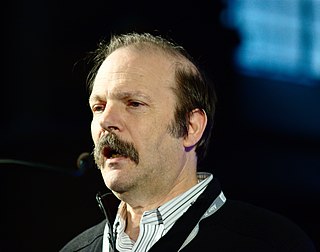A Quote by Reshma Saujani
For over a decade, the top 1% of income earners have seen their pay skyrocket, riding a wave of lobbyist-sponsored financial de-regulation. For the remaining 99%, wages have stagnated, and employment has fallen off a cliff.
Related Quotes
Regarding the Economy & Taxation: America's most successful achievers do pay a higher share of the total tax burden. The top one percent income earners paid 18 percent of the total tax burden in 1981, and paid 25 percent in 1991. The bottom 50 percent of income earners paid only 8 percent of the total tax burden, and paid only 5 percent in 1991. History shows that tax cuts have always resulted in improved economic growth producing more tax revenue in the treasury.
If I'm owed money, but I say, 'Don't pay me, pay my cousin. Don't pay me, pay my charity,' you can do that, but then the IRS requires that you pay income tax on that. It's your income if you earned it and you directed where it went. If you exercised control over where the money went, you have to pay income tax on that.
Research has shown that middle-income wage earners would benefit most from a large reduction in corporate tax rates. The corporate tax is not a rich-man's tax. Corporations don't even pay it. They just pass the tax on in terms of lower wages and benefits, higher consumer prices, and less stockholder value.
Requiring the payment of higher wages will lead to a loss of some jobs and a raising of prices which drives companies to search for automation to reduce costs. On the other hand, those receiving higher wages will spend more (the marginal propensity to consume is close to 1 for low income earners) and this will increase demand for additional goods and services. Henry Ford had the clearest vision of why companies can actually benefit by paying higher wages.
It is no exaggeration to say that rising inequality has driven many of the 99 percent into a financial ditch. It also helped spawn the housing bubble that gave us the financial crisis of 2008, the lingering effects of which have forced many OWS protesters to try to launch their careers in by far the most inhospitable labor market we've seen since the Great Depression. Even those recent graduates who manage to find jobs will suffer a lifelong penalty in reduced wages.
The free enterprise concept inherent in the economic model of capitalism should mean common people, or lower and middle class wage-earners, have greater potential to rise up and gain financial independence. In reality, however, free enterprise all too often leads to an almost total lack of government regulation that in turn allows the global elite to run amuck in Gordon Gecko-style financial coups.
When the mass of families in a State are without property, then those who were once citizens become virtually slaves. The more the State steps in to enforce conditions of security and sufficiency; the more it regulates wages, provides compulsory insurance, doctoring, education, and in general takes over the lives of the wage-earners, for the benefit of the companies and men employing the wage-earners, the more is this condition of semi-slavery accentuated.


































